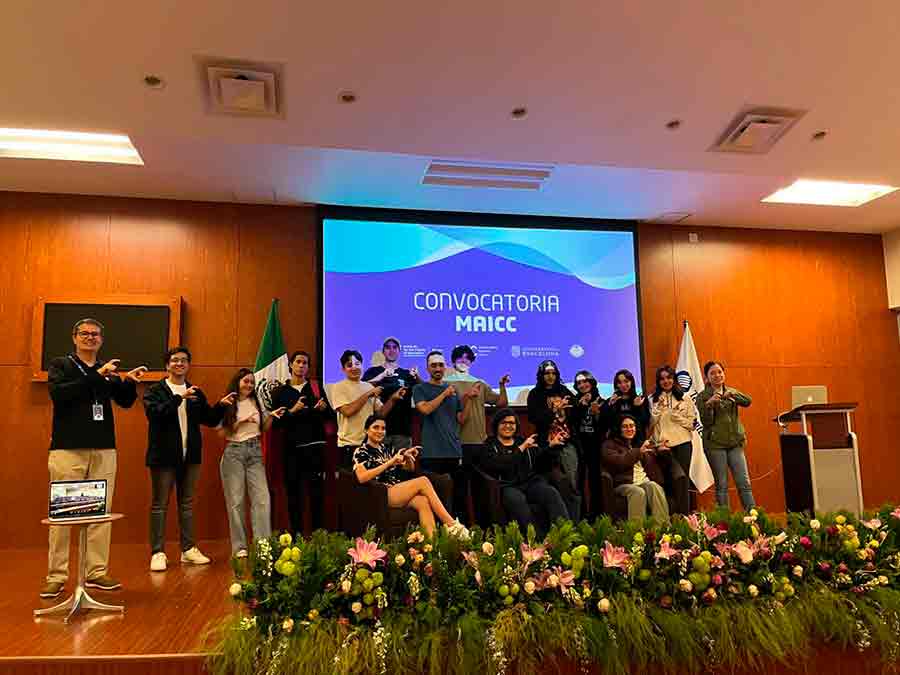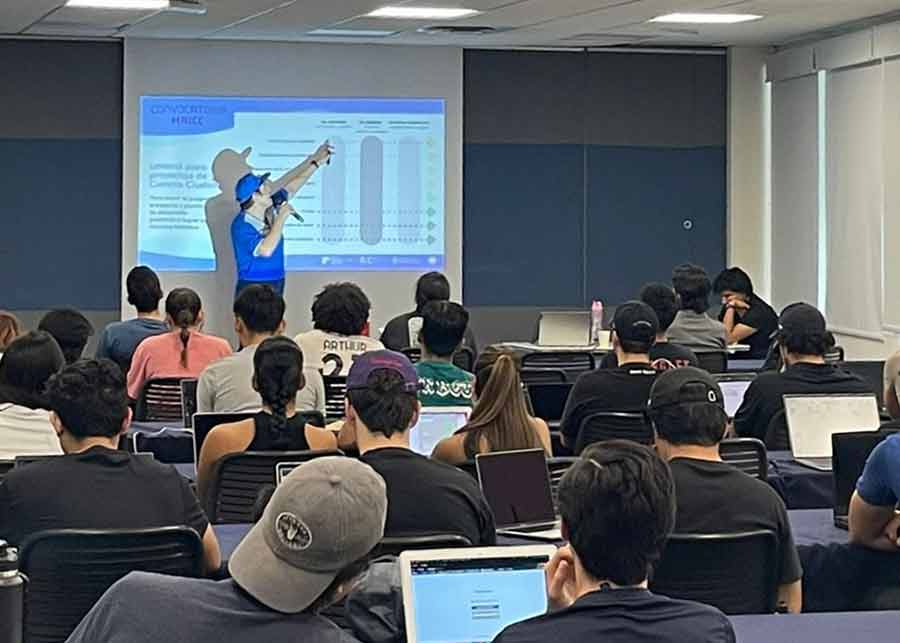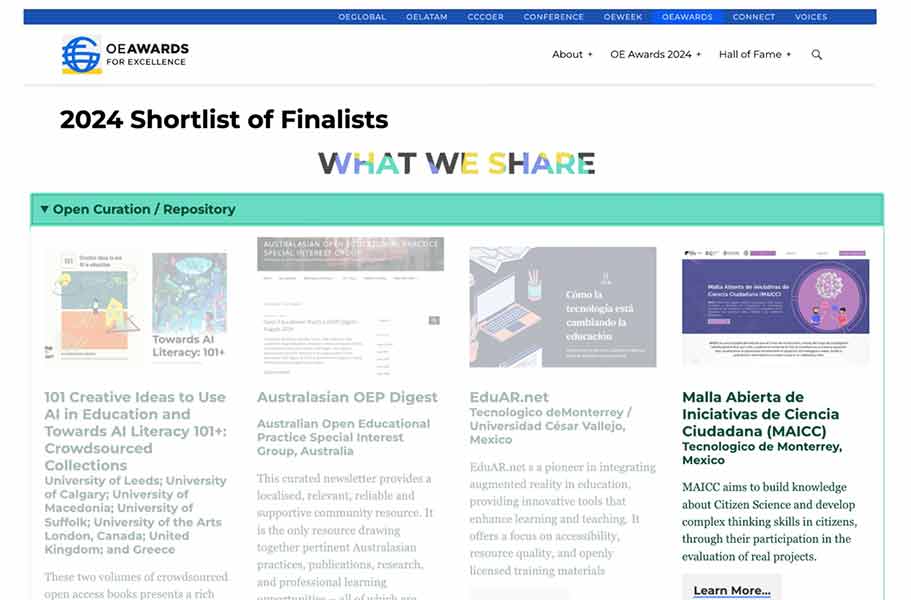A research and innovation project from the Tec’s Novus initiative developed at the Guadalajara campus has been internationally recognized by being chosen as a finalist for the 2024 Open Education Awards for Excellence (OE Awards).
This project is called the MAICC (Open Network of Citizen Science Projects), a digital platform designed to connect users with real scientific projects, so that those who participate develop complex thinking skills.
MAICC was one of the four finalists for the OE Awards in the What We Share: Open Curation/Repository category. It’s also a proposal from the Tec’s Institute for the Future of Education, through the R4C Interdisciplinary Research Group, which invites people to explore the world of Citizen Science to the fullest extent.
Jorge Sanabria, the research professor at Tec Guadalajara who led the development of MAICC, said that “the heart of the project is to bring students closer to the world of research in a dynamic and attractive way.”
As stated on its official website, the annual Open Education Awards for Excellence highlights outstanding contributions in the Open Education community, honoring exemplary leaders, distinctive Open Educational Resources, and Open Practices from around the world.

Learning path
Sanabria explained that Citizen Science is understood as a “way of producing new scientific knowledge through a structured project of collective, participatory, and open research, in which people who don’t necessarily work in academic fields are involved.”
The MAICC (Open Network of Citizen Science Projects) project is a technology platform that allows participants to learn how to evaluate real Citizen Science projects.
“We firmly believe that citizen science is an excellent way to generate technological advances that can have a social impact,” said Sanabria.

The platform offers a learning pathway or route consisting of seven steps that academics interested in evaluating projects must follow.
The pathway to navigating the platform is as follows:
- Log in and register on the platform
- Assignment of projects to be evaluated
- Identify project’s characteristic fields
- Threshold-based evaluation
- Qualitative report
- Open Educational Resource Design
- Approval by researchers
The academic highlighted that one of the most important steps is threshold-based evaluation. This last step is a guide intended to evaluate and analyze the assigned projects, with the aim of promoting the development of critical thinking among those participating.
The purpose of this pathway is for students to develop an Open Educational Resource (OER), where the knowledge acquired during the research is shared and greater visibility is achieved for the assigned project.
“The heart of the project is to bring students closer to the world of research.”
Excellence in Open Education
To promote their work, Jorge Sanabria and his team decided to register MAICC for the Open Education Awards for Excellence, which recognizes the most outstanding contributions to the Open Education community.
The initiative was selected as one of four finalists from among 112 nominations for excellence in Open Education, from 28 countries around the world.
They were nominated in the “What We Share” category, which recognizes open education projects that create and use tangible goods, which are usually digital, with an educational purpose and value.
“It’s great to be part of a project that’s becoming successful, that’s recognized by experts at an international level, or that helps position Tec de Monterrey as an institution,” said the researcher.

Committed to Citizen Science
Finally, Jorge highlighted the importance of MAICC being a platform that promotes research and science among students from different regions.
“What most excites me about MAICC is empowering students to learn about the world of research and hopefully decide to become researchers one day,” Sanabria concluded.
ALSO READ:





